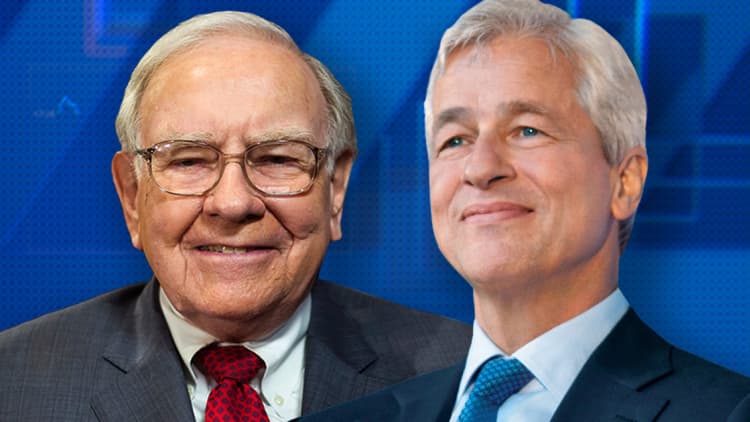
President Donald Trump on Friday advocated for a possible end to the long-held quarterly earnings reports for publicly traded companies, saying it would boost business and in turn help create jobs.
In a morning tweet, the president said he had spoken to "business leaders" for their ideas on growth and they believed filing earnings reports every three months was one obstacle for growth. One idea would be to report every six months.
The Securities and Exchange Commission said it continues to study issues affecting long-term decision make for companies. In a statement, SEC Chairman Jay Clayton said Trump had "highlighted a key consideration."
"The SEC's Division of Corporation Finance continues to study public company reporting requirements, including the frequency of reporting," Clayton said. "As always, the SEC welcomes input from companies, investors, and other market participants as our staff considers these important matters."
Addressing the issue later in the morning with reporters, Trump said, "I'd like to see twice" a year for reporting.
He said he spoke with the retiring CEO of PepsiCo — an apparent reference to Indra Nooyi — who had mentioned biannual reporting as a way to, in Trump's words, "make it even better."
"And I thought of it and it made sense to me, because you know we are not thinking far enough out," Trump said. "We've been accused of that for a long time, this country. So we're looking at that very, very seriously. We're looking at twice a year instead of four times a year."
Nooyi said she spoke in the larger context of allowing corporations, including those on the Business Roundtable in which she takes part, to be able to take a longer view of operations.
"Most agree that a short-term only view can inhibit long-term strategy, and thus long-term investment and value creation," Nooyi said in a statement. "My comments were made in that broader context, and included a suggestion to explore the harmonization of the European system and the U.S. system of financial reporting. In the end, all companies have to balance short-term and long-term performance."
The European Commission in 2014 dropped a requirement for companies to report on a quarterly basis, a model the U.S. could someday follow.

The White House said Trump is interested in exploring the issue as part of its efforts to break the regulatory burden for businesses.
"The President is interested in examining this issue on whether short-term earnings reporting requirements for public companies reduce incentives for them to engage in long-term investing in the United States," spokeswoman Lindsay Walters said. "This is part of the Administration's ongoing regulatory reform efforts that aim to ensure that the U.S. economy remains the most productive in the world."
The issue of how reporting hamstrings corporate executives is not a new one. CEOs have complained often about the process in which companies try to meet the expectations placed on them by Wall Street analysts, and markets move on the results.
In early June, corporate heavyweights Warren Buffett, CEO of Berkshire Hathaway, and J.P. Morgan Chase CEO Jamie Dimon bemoaned the quarterly guidance system, in which companies forecast expectations of their future earnings.
"Quarterly earnings, they're a function of the weather, commodity prices, volumes, competitor pricing. And you don't really control that as CEO," Dimon said in a CNBC interview. "Sometimes you're just like the cork in the ocean, but do the right thing anyway and you're going to be fine in the long run."
Dimon said executives should "feel free to drop" quarterly guidance if they felt like it was intruding on their business plans.
Buffett, too, said companies can shortchange their long-term interests by trying to meet short-term goals.
"When companies get where they're sort of living by so-called making the numbers, they do a lot of things that really are counter to the long-term interests of the business," Buffett said in the same interview.
Watch: Buffett and Dimon call for end to quarterly guidance



